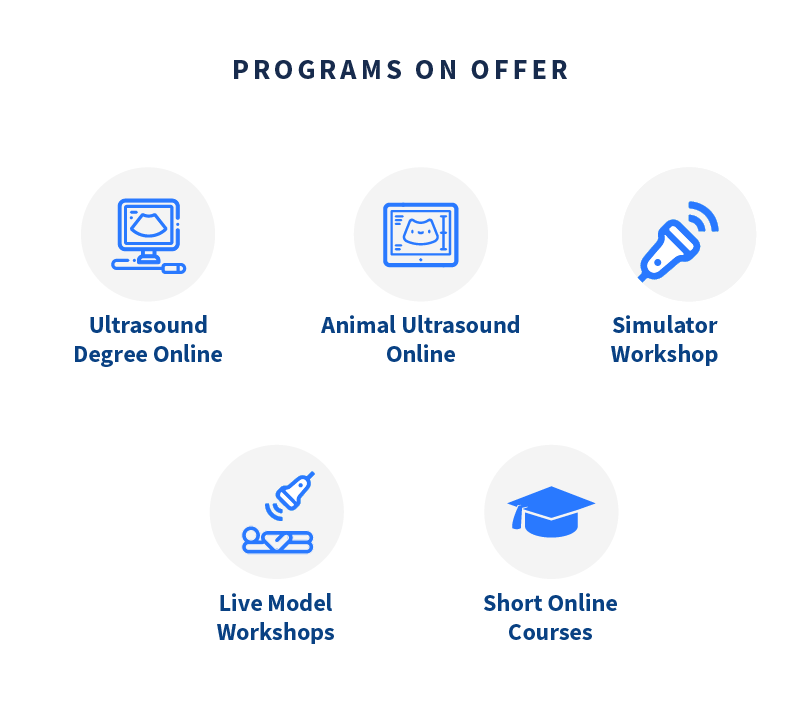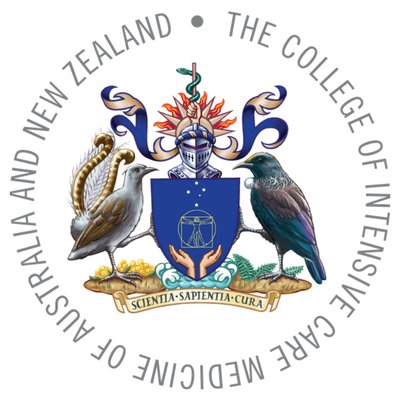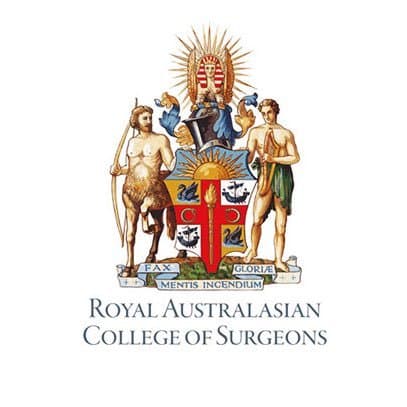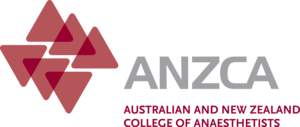POCUS Short Courses for Individuals
Tailored to help you incorporate point-of-care ultrasound into your practice, our short courses are delivered 100% online and are completely self-paced, so you can fit study into your schedule. Combine your online learning with access to our high-fidelity Simulation Centre based at the Centre for Medical Research in Parkville.
-
Transthoracic Echocardiography
The Focused Cardiac Ultrasound Transthoracic Echocardiography (FCU TTE) Course offers a comprehensive knowledge base through learning practical skills in transthoracic echocardiography to complement clinical evaluation.
-
Ultrasound Guided Peripheral Venous Access
After completing this self-directed online course you will be able to perform ultrasound guided peripheral venous cannulation, increasing the success rate of IV cannulation as well as reducing the time taken.
-
Ultrasound Guided Vascular Access
Never miss a central venous line or arterial line again after you have completed this course! After completing this course, delegates will be able to perform ultrasound guided central venous (internal jugular, femoral vein and PICC) and peripheral arterial catheter (radial, brachial and femoral) insertion, increasing the success rate, reducing the time taken and reducing the chance of complications.
-
FCU TOE
The Focused Cardiac Ultrasound Transoesophageal Echocardiography (FCU TOE) Course offers a comprehensive knowledge base through learning practical skills in transoesophageal echocardiography to complement clinical evaluation.
Can't find the course you're looking for? Check out our complete list of offered courses
POCUS Training for Groups
Our ultrasound experts are happy to discuss your requirements and tailor an educational program that best suits the needs of your team. We have the latest VIMIDEX simulators that aid in ultrasound learning with our self-directed online programs.
-
POCUS to you
Learn the application of clinical ultrasound in your practice through tailored short courses. In addition to our online learning modules, we can send the SIM to your hospital within Australia*
-
Group POCUS at UoM
We are happy to discuss your specific requirements and organise workshops at our facilities at Royal Melbourne Hospital.
We are happy to support our TEE Critical Care International Group colleagues with their TEE Masterclass, Dec 2 to 6 in Paris, France.
These award courses are offered to medical professionals who wish to obtain further expertise in medical ultrasound for clinical practice. All graduate courses are delivered online and require no contact hours.
Clinical training and education are vital elements for any hospital’s growth. Our Focused Ultrasound Simulator Education (FUSE) and Focused Cardiac Ultrasound (FCU) workshops have been developed to combine the advantages of eLearning and Simulator Self-training.
- FUSEUltrasound Guided Peripheral Venous Access
- FCU Transoesophageal Echocardiography
- FCU Transoesophageal Echocardiography Advanced
- FCU Transthoracic Echocardiography
- FCU Transthoracic Echocardiography Advanced
- FCU Peri-Arrest
- FCU Institutional
- FCU Transthoracic Echocardiography Certification
- Short CourseBasic TTE Online
Study Portal
Exam Extension Request:
You will need to have your student number handy please allow 24 hours for processing.
Graduate Certificate in Clinical Ultrasound
Graduate Diploma in Clinical Ultrasound
| MEDI90056 | Advanced Anatomy and Doppler Analysis |
| MEDI90057 | Advanced Valve and Aortic Pathology |
| MEDI90058 | Applications of Echocardiography |
| MEDI90059 | Advanced Echocardiography |
Masters in Clinical Ultrasound
| MEDI90046 | Echocardiography and New Technologies |
| MEDI90083 | Research Methods and Ultrasound Literature |
| MEDI90047 | Congenital, Obstetric and Medical Conditions |
Graduate Diploma in Perioperative Medicine
| MEDI90103 | Prehabilitation and Risk Assessment |
| MEDI90104 | Enhanced Recovery After Surgery |
| MEDI90105 | Perioperative Complications |
| MEDI90106 | Post-op Quality of Recovery Practicum |
Graduate Certificate in Small Animal Emergency & Critical Care
| VETS90036 | Cardiovascular and Respiratory Emergencies |
| VETS90037 | Abdominal and Urogenital Emergencies |
| VETS90038 | Haemato, Neurological and Global Conditions |
| VETS90039 | CPR, Eye Emergencies and Practical ECC |
Graduate Certificate in Small Animal Ultrasound
| VETS90040 | General Princples and FAST Techniques |
| VETS90041 | Urinary and Reproductive Tracts and Lymph Nodes |
| VETS90042 | Liver Spleen and Sampling |
| VETS90043 | Gastrointestinal Tract, Pancreas and Adrenals |
Specialist Certificate in Clinical Ultrasound (Online)
| MEDI90112 | Clinical Ultrasound – Core Concepts |
| MEDI90125 | Transthoracic Echocardiography (TTE) |
| MEDI90121 | Peri-arrest Ultrasound |
| MEDI90126 | Ultrasound Critical Care Procedures |
Specialist Certificate in Clinical Ultrasound (Practical)
Frequently Asked Questions
-
How do I contact your support team?
Our Support team work from Monday to Friday, 8 am – 4 pm AEST. You can contact us by calling (03) 8344 5673 or submitting a case with us online. You can submit a case by following this link (https://www.tfaforms.com/4936023). We will get back to you within 24 – 48 business hours.
-
How do I access my course content?
Our courses are available via our online Learning Portal. Once you have enrolled, you will receive a ‘Welcome to the Learning Portal’ email within a few minutes with a link to activate your account. Once your account is activated, your course is available immediately. Please use your email address and assigned password to log on.
-
When can I start?
Our suite of short courses has no specific start or intake dates, meaning you can apply at any time. If you are an Award course student, please refer to the University of Melbourne key dates to see when each semester starts and ends.
-
Do I receive any hands-on learning?
Our courses are delivered entirely online to ensure they are light-touch and easily accessible for our students. They incorporate videos, case studies and author notes. If you require any academic assistance or would like further clarification on any of the content, please contact us and we can direct your query for you.
-
How long do I have to complete my course?
This depends on the course you are enrolled in. For our short courses, we recommend completion within a 12-week period. For online workshops that require submission of case studies, we recommend longer. Award courses are dependent on what you’re studying and your allocated study load.
-
What certification do I receive after course completion?
You will receive a University of Melbourne Certificate of Completion detailing what you studied. If you successfully completed an award, e.g., a Graduate Certificate, you will receive a testamur from the University of Melbourne.
-
I have enrolled in multiple subjects but can only see one. How do I view the others?
If you are an Award course student and can only see one subject in the Learning Portal, please click on ‘Subject List’, which will display all the subjects you are currently enrolled in. From there, you can navigate between each subject. If you’re still encountering issues, please contact us.
-
I have finished my course, where is my Certificate of Completion?
It is a mandatory requirement for all students to complete an end-of-course feedback form or submit their feedback on the course in our Learning Portal. Please ensure you have submitted your feedback before requesting your Certificate of Completion and it will then be emailed to you. If you’re still encountering issues, please contact us.
-
I have logged in to the Portal but cannot see my course. What do I do?
First, please make sure you are using the correct email address you used upon signing up with us to log-in to the Learning Portal. Your course content is tied to your unique email address and your content will not show in the Portal if you’re using a different email. If you have multiple email addresses, such as a personal email and a University email, check your inbox to see where your receipt is. If you’re still encountering issues, please contact us.
For other queries or assistance, our hard working support team will contact you within 48 business hours.
Research Overview
UEG comprises of academics, including Prof Alistair Royse (Cardiothoracic surgeon, Deputy Director of Surgery), Prof Colin Royse (Anaesthetist) and Dr David Canty (Anaesthetist, Senior Lecturer), who supervise higher research degree students, undergraduate medical students performing research projects, and post-graduated clinicians pursuing active research and education projects.
Research themes include a wide range of ultrasound including transoesophageal echocardiography for cardiac surgery, clinical point of care diagnostic ultrasound of heart, lungs, abdomen, vascular, invasive procedures, and new techniques. Other active areas of research include cardiac surgery, cardiothoracic anaesthesia, postoperative quality of recovery in all types of surgery, and medical education.
History
The Ultrasound Education Group (UEG) was founded in 2004 at the University of Melbourne's Department of Surgery by Professors Alistair and Colin Royse. With advancement in recent technology, Portable Ultrasound Machine will be ubiquitous and affordable for professionals across different areas of healthcare industry in the near future.
Our mission is to equip holistic knowledge for medical practitioners to perform Point-of-Care Ultrasound Diagnosis. By combining eLearning with hands-on simulator workshops and and live-model practices, delivered by world-renowned experts in the field, we open the Pathway to Ultrasound Future for all healthcare professionals around the world.
The first course created was the Postgraduate Diploma of Perioperative and Critical Care Echocardiography. Over time this has expanded to the current portfolio which includes Graduate Certificate, Diploma and Master of Clinical Ultrasound. The iHeartScan and iHeartScan Advanced workshops were also developed, and more recently the Focused Ultrasound Simulator Education TTE, TOE, Peri-Arrest, Vascular and Lung and Gastric courses which integrate eLearning with simulators to reinforce practical components.
Our Mobile Learning Platform can be accessed, anytime, anywhere, on nearly any device!
Impact
In Australia, there are roughly 6500 anaesthetists and intensive care physicians. Over 2500 students have graduated from our award courses, and over 3000 have completed one of our workshops or getting started packages. To put this in perspective, we believe we have trained approximately 40% of the entire pool of anaesthetists and intensive care physicians in Australia.

Testimonial
The course has been so useful in fact the other day I was reading a tutorial then when at work the same scenario occurred and I was able to directly save a life because of that knowledge. Very grateful, thank you.
Anaesthetist
-
From a MBBS, MRCP (UK), FANZCA, Anaesthetics
With regards to the iHEART scan; 'An accessible, informative and hugely relevant workshop. Highly recommended
-
From an Anaesthetics Registrar
I have found the Diploma course to be excellent preparation for a career in this field and well recognised by all my peers. The content and presentation of the course material is excellent and provides an in-depth knowledge of echocardiography and its clinical application. I would thoroughly recommend it to anyone who is interested in echocardiography from a critical care background.
-
From a Cardiologist
The courses are very well organized, professional and applicable in clinical ultrasound and echocardiography. Staff from Ultrasound Education Group of The University of Melbourne are very helpful
-
From an Anaesthesia Fellow
The course did a fabulous job of equipping me with the knowledge base I need in order to be competent and effective in echocardiography. I heartily recommend this for anyone who needs flexibility of correspondence combined with the authority of a qualification from a respected institution
Featured
-

-

-

-

Ultrasound Education Group Melbourne Medical School Photo (2).png -

Ultrasound Education Group Melbourne Medical School Photo (8).jpg -

Ultrasound Education Group Melbourne Medical School Photo (10).jpg -

Ultrasound Education Group Melbourne Medical School Photo (11).JPG -

Ultrasound Education Group Melbourne Medical School Photo (17).jpg
Accreditation Bodies
.png)
FAQ
-
Do I receive any hands-on learning?
Most of our courses are exclusively online, designed to be user-friendly and accessible for our students. These courses integrate a variety of multimedia elements, including videos, case studies, and author notes to enhance the learning experience. We encourage students to seek out a supervisor for hands-on practice within their workplaces.
For those looking for a more immersive experience, we also provide the Specialist Certificate of Clinical Ultrasound (Practical version) and concise FUSE courses. These options grant students the opportunity to engage in hands-on practice using the ultrasound simulators at the University of Melbourne.
-
What does the Specialist Certificate in Clinical Ultrasound cover, and for whom is this course intended?
The Specialist Certificate (Spec Cert) addresses key aspects of point-of-care ultrasound (POCUS), from fundamental machine settings to the examination of the heart, lungs, abdomen, lower limb veins and ultrasound-guided procedures. It delivers essential knowledge in both image acquisition and interpretation, in addition to practical insights to enhance scanning skills and integrate ultrasound findings into the broader clinical assessment process.
This course is tailored for health professionals seeking to integrate POCUS into their clinical practice, including physicians, nurse practitioners, physiotherapists, paramedics, and other healthcare providers.
-
What does the Graduate Certificate in Clinical Ultrasound cover, and for whom is this course intended?
-
What does the Graduate Diploma in Clinical Ultrasound cover, and for whom is this course intended?
The graduate diploma extends the graduate certificate to advanced diagnostic echocardiography including Transoesophageal echocardiography (TOE)
Suitable for practitioners who want to develop advanced echocardiography interpretive skills such as cardiac anaesthetists, cardiologists, intensive care, and emergency medicine specialists.
-
What does the Master of clinical Ultrasound cover, and for whom is this course intended?
-
What does the Graduate Diploma in Perioperative Medicine cover, and for whom is this course intended?
The Graduate Diploma in Perioperative Medicine integrates the use of point-of-care ultrasound into the perioperative period. The perioperative medicine subjects provide students with current in-depth knowledge and application of perioperative medicine, including preoperative optimisation and risk stratification, prehabilitation, Enhanced Recovery After Surgery Pathways, management of postoperative renal, hepatic, respiratory and cardiac complications, postoperative diabetic, fluid and chronic pain management, and postoperative quality of recovery. It is suited for medical professionals who wish to upskill in contemporary perioperative medicine, and where applicable, integrate POCUS into their everyday clinical practice.
-
What are the benefits of commencing your clinical ultrasound learning journey with the Spec Cert as opposed to the Grad Cert?
Initiating your educational path with the Spec Cert offers several advantages:
· Achieve certification in half the time compared to the Grad Cert by focusing specifically on the areas that align with your interests.
· The Spec Cert program incorporates 'Stop and Practice' sections. These are excellent segments designed to offer practical tips and guidance, facilitating the immediate application of acquired knowledge.
· Seamless progression to the Grad Cert. The credits earned during the Spec Cert will be transferred to the graduate certificate program. Which means you only need to complete an additional 25 credits to meet the 50-credit requirement for the Grad Cert.
-
What are the differences between the practical and online versions of the Specialist Certificate in Clinical Ultrasound?
Both share similar content, with a significant portion delivered online. The practical version stands out for its hands-on sessions, a crucial component organised by the students themselves.
The practical variant involves a mandatory logbook and a hands-on exam, involving scanning either a person or a simulator, with the submitted images undergoing review.
Conversely, while the online version encourages practice, it does not enforce a mandatory practical exam or logbook completion.







